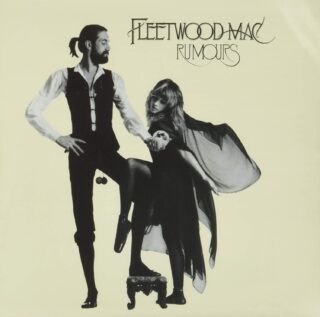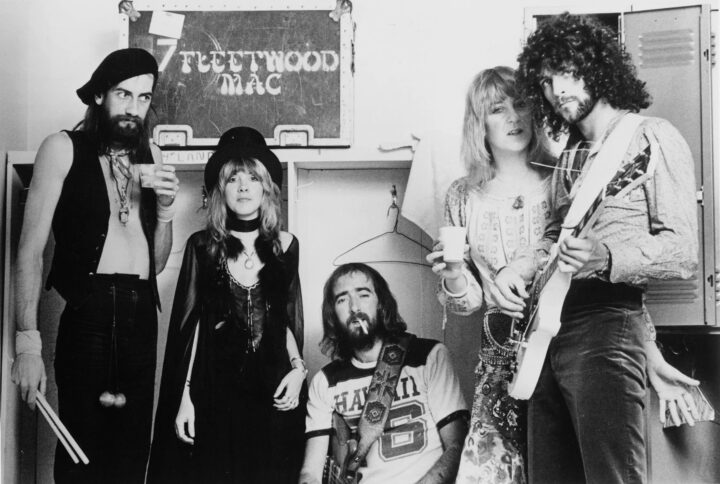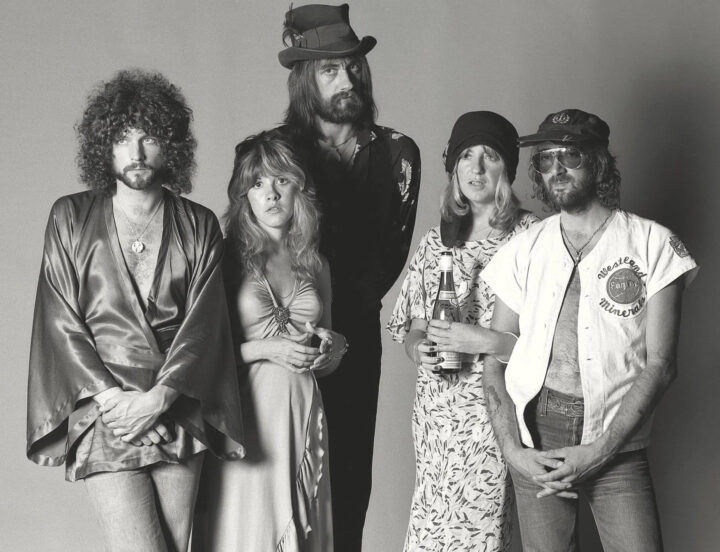Although I still haven’t figured out when Schvitz will actually be released (on the socials they refer to it as their 2022 album, on Bandcamp the release date is set to 30 December, but if you stick to the established “release-traditions” of Vulf Records the album will probably be out in its entirety during January 2023, once the last song on the tracklist will be released), Vulfpeck are regularly dropping a new single from it, once a week, in a rigorous numerical order. During this December, we listened to a mind-blowing sequence of songs including Earworm, New Guru, All That’s Left Of Me Is You and Simple Step (as I said, a song each Thursday, so yesterday it was actually the release date for the first single in side B of Schvitz, called In Heaven). I will talk about the album in its entirety as soon as the last song will be released, but it is noteworthy to say that the quality of all these songs is ridiculously high, letting you imagine being in front of one of the best studio works of the band. Take for instance Simple Step, sung by the amazing Antwaun Stanley: it is a reprise of an old song by Antwaun, Jack Stratton and Theo Katzman, recorded under the Groove Spoon moniker, and it is as freshly funny as it was in its original version, but spiced up by context and particularly by the continuous strumming of Cory Wong and his powerful right hand; or again, consider Earworm (written by Stratton), a sort of follow up to the morning moods of a masterpiece such as Birds of a Feather, We Rock Together, sung by Stratton himself (I can’t believe Vulfmon is finally collaborating with Vulfpeck. It’s like a match made in heaven! , says someone on the YouTube comments section) and sustained by the beautiful Woody Goss’ piano comps; or the delicate, pure-Katzman songwriting heard on the exquisite All That’s Left Of Me Is You, filled with a lot of Beatleseque-vibes; or the irresistible groove of New Guru (composed by Stratton and Jacob Jeffries), sung again by the mighty Antwaun, featuring a sax solo by Joey Dosik and a short bass solo by the one and only Joe Dart, and most of all an exhilarating key change in the middle of the song (Nothing more respectful than Antwaun asking for the key change and immediately bringing it back. Pure class all the way, as from the YouTube comments). As you may understand, Schvitz is expected to be one of the most intriguing and top class releases of 2023, such as Vulfpeck have decided to crack down next year’s Top 10 lists something like an year in advance: here we play in a completely different league, and the astonishing quality of these compositions (and of the musicians themselves) says it all. Don’t miss this album for any reason!
On December 14, The Smile (the new power-band by Thom Yorke, Jonny Greenwood and Tom Skinner; here we wrote about their first album, A Light For Attracting Attention) released a video of their complete July 2022 performance at the world-famous Montreux Jazz Festival. The video introduced the related live EP, published via XL Recordings, and was made available in its entirety on YouTube for something like a day. From then on, the band released some of the songs as individual videos, and they are definitely worth a shot. The Smile represents a direct evolution of the renowned Radiohead sound (as you may easily expect), but even more jazz-oriented, mainly due to the discrete and inspired drumming by Skinner. This live performance and the related EP capture the band in a glorious moment of inspiration, and are definitely a must see/hear of this 2022: have a listen to the moving live rendition of a beautiful song such as Free in the Knowledge to get an idea.
December 23 marked the released date for Mundo Trampa, the first LP by the Argentinian singer, guitarist and songwriter Manu Estrach together with the talented bass player, singer, composer and Ernie Ball Music Man artist Sebastián Tozzola (those of you who actually read this blog will know everything about him: for all the others, click here and here and catch up!). I intend to write something more exhaustive about Mundo Trampa during the next weeks, but for now it is enough for you to know that here we have 8 songs (for a total of about 30 minutes of music) that combines the traditional Argentinian music with the delicacy of the best pop, sung and played by two extraordinarily talented musicians. There is no need to use any more words to describe the out-of-this-world-playing of Sebastián (to me, as I clearly stated in my recent review of his Paseo del Bajo Vol. 2, he is one of the greatest contemporary interpreters of the electric bass), just a few to say that the mellow sound of Sebastián’s bass (and, here and there, of his bass clarinet) provides the ideal substrate for the intricate guitar arpeggios and melodious voice by Estrach. The whole Mundo Trampa develops around the idea of the duet, both instrumental and vocal: the intertwining of Estrach and Tozzola’s voices gently cradles the listener, drawing panoramas that are both romantic and nostalgic. Mundo Trampa is as soft as a a feather, or a caress, if you prefer: a beautiful work to elegantly close this 2022.
2022 also marks the 45th anniversary of the publication of another great album, Rumours by Fleetwood Mac (same year of Aja by my beloved Steely Dan: what a year!). Of course, Fleetwood Mac need no presentation: the British-American rockband, composed by drummer Mick Fleetwood, bassist John McVie, singer/sonwriter/pianist Christine McVie (who recently passed away), singer/songwriter Stevie Nicks and guitarist/singer/songwriter Lindsey Buckingham released in February 1977 what it is nowadays considered their absolute masterpiece, Rumours. Produced by the band together with Ken Caillat and Richard Dashut, Rumours was recorded in California during 1976 and was mostly inspired by several relationship breakups among band members, in addition to drug abuse issues: the ten-year relationship between Buckingham and Nicks was at a dead end; Mick Fleetwood has just discovered his wife’s betrayal; and John and Christine McVie were coming out of a tiring and painful divorce. All these personal and relationship issues were further worsened by substances abuse (they actually considered, at least for a certain period, to add their pushers in the album credits), and by a commercial success that the band seemed to keep missing for some reasons. Unexpectedly (or maybe, not at all) all these extremely strong tensions resulted in an album that was (and actually is) one of the pop-rock’s all-time highest peaks, an album as simple, well written and magnificently played as utterly moving and painful: eleven timeless songs that feel like they were written today, as fresh and powerful as 45 years ago. Rumours was an immediate success, being acclaimed by the music critics since its release: it is an actual blockbuster, that sold more than 40 million copies worldwide, receiving Diamond certifications in diverse countries and being certified Platinum more than 20 times only in the USA. The album is sophisticated and allusive since its beautiful cover artwork, realised by the photographer Herbert Worthington: the front cover features a stylised shot of Mick Fleetwood and Stevie Nicks dressed in her Rhiannon stage persona, while the back cover has a montage of band portraits. As said, Rumours deals mainly with relationships: the lyrics of most of the songs revolve around troubled relationships and breakups, with openly sad moods, dealing with loneliness, dependence and pain. Musically speaking, Rumours is built on an intriguing mix of acoustic and electric instrumentation, flirting with soft rock and pop rock sounds as well as with folk moods and, somewhere, some slight, vague jazz inspirations.
The album opens on the guitar-oriented pop song Second Hand News, composed by Lindsey Buckingham (who is also the lead singer), featuring a continuous, driving bassline and shiny vocal countermelodies by Nicks and McVie. Second Hand News is as short as irresistible: despite its high-key mood, the song is in fact a quite desperate glimpse into separation (I know you’re hoping to find/ Someone who’s going to give you peace of mind/ When times go bad/ When times go rough). Second Hand News ends up on an emotional chorus (with Buckingham keep on repeating the line I’m just second-hand news) and a painful, beautiful short guitar solo. The genesis of this song is recalled this way by Kevin Caillat in his track-to-track guide to Rumours: We called it ‘Strummer.’ Before Lindsey had the structure and the words, he would strum his guitar very very hard go these chords. I always thought he’d turn it all into a song.[…] Originally, John McVie had an amazing, flowing and melodic bass part. Lindsey had a problem with that. It took him a while, but eventually, while John was on vacation, he put down his own bassline, one that was very simple, just quarter notes. Dreams was composed and sung by Stevie Nicks. According to the legend, Nicks was bored with technical stuff going on during the recording sessions, and asked for a piano room where to relax a bit. She came back from the piano room after a few minutes with a finished song, which played (and recorded) instantly in a single take, joined by the other musicians: this song would have been Dreams. Following Caillat words,
Most of the material for the album was composed in the studio but Stevie used to get bored, sitting around while all the technical stuff was going on, so she asked if there was a room with a piano to noodle around on. Well, the Record Plant told her she could use Sly Stone’s studio — a little sunken room that they’d built for him to work in — and one day while we were working on some track, she came in and said, ‘I’ve just written the most amazing song.’ ‘Really? Let’s hear it.’ So, she walked over to the Rhodes — which, like everything else, was always mic’d up and ready to go — and she played ‘Dreams’. Everyone else joined in, she did a guide vocal, and that was the keeper. It’s the only time that ever happened. She tried to redo the vocal again and again, but she could never beat the original. I actually wanted her to beat it, because it had the drums leaking into her vocal mic and, in a couple of spots where she sang softly, I had to ride it up and you could hear even more of the snare. Still, it was a one-off.

Dreams is a delicate, elegant ballad sustained by the deep, round basses of John McVie and featuring the painful and melancholy lines sung by Stevie Nicks (Now here I go again, I see the crystal visions/ I keep my visions to myself/ It’s only me who wants to wrap around your dreams/ And have you any dreams you’d like to sell?/ Dreams of loneliness/ Like a heartbeat drives you mad/ In the stillness of remembering what you had/ And what you lost/ And what you had/ Oh, what you lost): a precious, mellow masterpiece. According to Lindsey Buckingham, who composed it, Never Going Back Again “[…] was a very naive song. I had broken up with Stevie and maybe met someone. It could have been someone who really didn’t mean a thing.” The lyrics from Never Going Back Again are as plain and simple as the strummed, guitar arpeggio is intriguing and challenging: despite being very short, Never Going Back Again is a real guitar tour de force for both hand picking and hand positions. This incredibly complex guitar piece had a very tricky realization: as recalled by Caillat, “Lindsey had a pretty cool song called ‘Brushes’ – we called it this because we were going to have Mick do a press roll on his snare with brushes. That idea kind of went away. A lot of our focus shifted to Lindsey and his acoustic guitar. I noticed that anytime he played, there was a big difference in how bright his strings sounded after just 20 minutes. So I said, ‘Can we restring your guitar every 20 minutes?’ I wanted to get the best sound on every one of his picking parts. He said sure. It took a long time to nail everything – all day, actually – and I’m sure the roadies wanted to kill me. Restringing the guitar three times every hour was a bitch. But Lindsey had lots of parts on the song, and each one sounded magnificent. And it did. The only problem was, when Lindsey went to sing, he realized that he played all of his guitar parts in the wrong key. Oh, man! So we recorded everything all over again the next day, dispensing with the changing of guitar strings – we had to lose all of that so we could get Lindsey singing in the right key.” Don’t Stop, composed by Christine McVie, is a blues-rock-oriented shuffle: according to the author, “Don’t Stop’ was just a feeling. It just seemed to be a pleasant revelation to have that ‘yesterday’s gone’. It might have, I guess, been directed more toward John, but I’m just definitely not a pessimist. Go Your Own Way was the first single to be released from the album, and it is a driving rock piece held together by Buckingham’s guitar parts. Songbird (another composition by McVie) is a soft and gentle piano ballad, featuring some emotional lyrics about self sacrifice in love (And I wish you all the love in the world/ But most of all, I wish it from myself). Caillat decided to use a large space for a better rendition of the intimate yet airy mood of the piece: Christine started playing something she had written on the piano one day, and it floored me. It was so beautiful and special, so personal – I knew I had to get just the right recording of it. Before Rumours, I had recorded an album with Joni Mitchell at the Berkeley Community Theatre. I thought doing a similar kind of concert recital recording was perfect for Songbird. Christine and the whole band loved the idea. The Berkley Community Theatre wasn’t available, so we used the Zellerbach Auditorium, the same kind of vibe. Christine sat on the stage and played a nine-foot Steinway, and she sounded magnificent. I used 15 tracks for the piano – two close mics and the rest were distant mics. For something like ‘Songbird,’ I wanted the room to really speak.
The Chain opens side two of the album, and it is the only song credited to all band members: it in fact resulted from the composition of various parts written by the various musician (The ending was the only thing left from McVie’s original track; we ended calling it “The Chain” because it was a bunch of pieces, said Buckingham), and it is definitely one of the most famous tracks from Rumours. Built on a bluesy guitar/dobro arpeggio, on a thoroughgoing drum pattern by Fleetwood and pulsating low-ends provided by John McVie, The Chain ends up in an extraordinarily driving instrumental section, featuring what probably is one of the most renowned basslines of all times, in a hell of an epic ride which seems to anticipate the obsessive new wave sound. Still today, an astonishing piece of art. Citing Caillat, “It began as one of Christine’s things, something called ‘Keep Me There.’ I remember Richard and I almost got fired while trying to record it because we spent five days on drum sounds – the band thought we were clueless. They ran through it one day and John McVie did that incredible bass line – just like that it just came to him. What a part! Next, the band began playing the tag at the end, that big rocking section. Amazing. Then, out of nowhere, Lindsey played a screaming guitar solo. Really exciting stuff. Over the next nine months, we’d revisit the song. There was great playing on tape, but it still wasn’t right. Finally, three weeks before we wrapped the album, Lindsey figured out how to connect everything. He took the verses apart, played a Dobro and asked Mick to play a straight quarter-note beat on the kick. Next, Lindsey rewrote the chorus and put a whole new rhythm to it. Everything clicked.” You Make Loving Fun is another composition by Christine McVie, dedicated to the guy she was dating immediately after her marriage to John McVie (now sit down and just try to imagine the amount of tensions accumulated in that recording studio…). The song has a peculiar rhythmic development, built on accents: as Caillat recalled, “There’s some tom fills on ‘You Make Loving Fun’ in the choruses that Lindsey wanted to have kind of a spastic, accentuated beat. Mick felt that he didn’t really want to try it so Lindsey played the toms. Lindsey was the accent king. He could accent with guitars, he could accent with toms, he could accent with Naugahyde chairs. In fact, the chorus is a beautiful combination of melody and rhythm, making of You Make Loving Fun a very special moment. Again following the words by Caillat, You Make Loving Fun was “My favorite-sounding song on the record. I just love those four clicks on the hi-hat and bam! We’re right into it, with everybody playing. I still think it sounds great. Originally, it was done on Christine’s Yamaha electric piano. We wanted it to sound nastier and dirtier, though, because everybody was playing very hard. I made a remark about a Clavinet, and one of the engineers said there was one in Sly’s room. We ran out and grabbed it. To accentuate the ‘Clav-iness,’ we put it through a wah-wah pedal. Christine couldn’t play her keyboard part and work the wah at the same time, so Mick got down on his hands and knees and worked the pedal while Christine played. Being a drummer, he knew just what kind of rhythm it needed.” I Don’t Want To Know came instead from the Buckingham Nicks Duo, written and performed well before the couple joined Fleetwood Mac, but it was never recorded until the Rumours sessions, and it was inserted in the tracklist in place of Silver Springs, another song written by Nicks (Silver Springs would have been added later in some reissues of Rumours released over the years). Oh Daddy, composed by Christine McVie, is probably one of the saddest songs in the whole album, kept together by a gracious weaving of the Hammond organ and Buckingham’s guitar lines: Oh Daddy is crossed by a subtle restlessness, that follows the beautiful vocal harmonies by McVie, and closes in a mellow constellation of small, beautiful and evocative sounds. The last track is Gold Dust Woman, written by Stevie Nicks, an unsettling folk song flirting with some free-jazz moods. In the words of Caillat, “The definitive magical Stevie Nicks vocal would have to be ‘Gold Dust Woman,’ She was possibly possessed at the end of that song. […] It evolved slowly. The basic track was very simple, kind of like a folk song. Stevie wanted it to grow. It just kind of snuck up on you. The next thing I knew, it was getting kind of creepy. The song features a clear reference to drug addiction, and particularly to cocaine abuse (like in the outro, where Nicks sings in a kind of a demoniac possession the lines Ooh, pale shadow of a woman/ Black widow/ Pale shadow of a dragon/ Dust woman). Using again the words of producer and sound engineer Caillat, “It was a weird song, and truthfully, I wasn’t very excited about it. I couldn’t tell where it was going. It was typical Stevie – most of her songs, in their inception, are close to 10 or 12 minutes long, with endless verses and epic stories. My job became one of editing, taking all of these sections and making them flow, cutting out the fat. Stevie would go crazy – ‘Oh, that verse was about my mother! That part was about my dog!’ [laughs] These things would mean something to her, but they had to work for the listener. The song grew more evil as we built it. I called over to SIR and they send over a bunch of weird instruments, like an electric harpsichord with a jet phaser – that created a cool, whooshing sound. We weren’t looking for musicality, we were looking for accents, mood. We marked the keyboard with tape so Mick could play the right notes. Stevie had a lot of Courvoisier in her, and she did this incredible coyote-like howling at the end. She had become this witch she was always writing about. To accentuate her vocals, Mick went into this room we had miked up, and he broke sheets of glass. He was wearing goggles and coveralls – it was pretty funny. He just went mad, bashing glass with this big hammer. He tried to do it on cue, but it was difficult. Eventually, we said, ‘Just break the glass,’ and we fit it all in.
Along Rumours we can enjoy the writing of three of the greatest songwriters of their era: Lindsey Buckingham and his folk-oriented guitars, and probably two of the greatest female songwriter of all times, at least in the pop panorama, the sophisticated Christine McVie and the restless spirit of Stevie Nicks, who wrote some of the most memorable songs in the entire band catalogue (just one title: Landslide). But what made the writing immortal was in fact the gorgeous rhythmic section provided by the solid drumming of Mick Fleetwood, along with the impeccable low-ends managed by John McVie: an inexhaustible engine capable of starting the whole machine, bringing home some very memorable passages (I am thinking most of all about The Chain’s coda). Despite the tensions and all the personal issues, or maybe because of them, the Fleetwood Mac delivered one of the most accomplished examples of sophisticated and intellectual pop-music of their era (which, we should not forget, was an era of astonishing pop music: I don’t want to repeat myself, but I remember you that Steely Dan’s Aja was released during the same year); it doesn’t matter that the band remained somewhat a prisoner of the spirit (and sound) of Rumours, and in the years to come they were no longer able to replicate the success of this extraordinary album. Rumours portraits a band in a state of grace, overwhelmed by problems but capable of distilling all the tensions into eleven almost perfect tracks, eleven songs that still sound as fresh and alive today as if they were written a few hours ago. Along the tracklist the band walked on a thin thread, in a precarious and fascinating balance – and even with a slightly vain attitude, typical of those who know well that they are putting together something huge. But, in the end, what more can you ask of an album than to be, in its own right, immortal?



